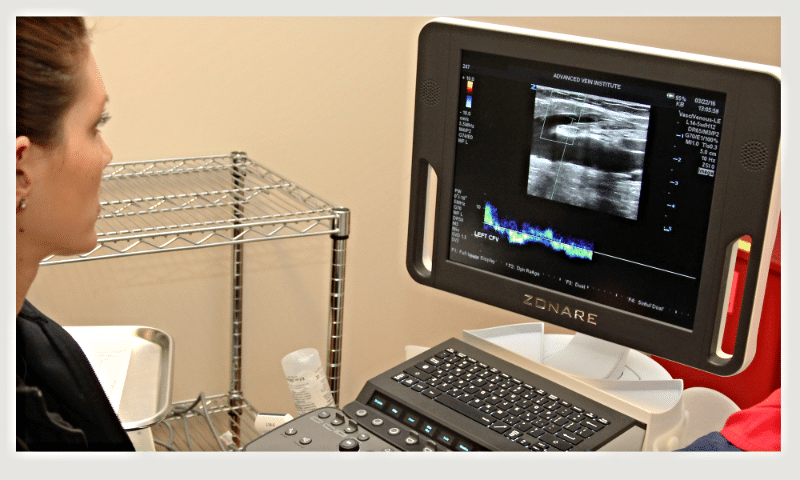
Treatments and Intervention for Venous Insufficiency
Aside from conservative therapies for vein insufficiency, when your symptoms get to the point that these no longer work, or you want a more permanent solution, there are several methods to treat vein disease.
All of them, regardless of method, aim to improve circulation and minimize symptoms by eliminating the abnormal vein. These methods include vein stripping, ligation, phlebectomy, ablation with thermal energy (radiofrequency or laser), sclerotherapy, and the newest method is called non-thermal, non-tumescent treatment.
This newest treatment closes the vein off with an adhesive that is placed directly in the vein under ultrasound guidance. Patients walk out of the office with little to no pain and are not required to wear compression after the procedures.
Older, more Painful Methods of Vein Stripping and Phlebectomy
Vein stripping and phlebectomy are painful older methods used to literally remove the vein from the body. Patients typically have quite a bit of post procedure pain and discomfort. These are not techniques we choose to perform at this practice.
Less Painful and Permanent Treatment of Varicose Veins
The less painful, more current forms of treatment include thermal ablation and the adhesive closure. The thermal treatments take about a half hour to complete, are performed using local anesthesia, and patients walk out of the office to carry on about their normal routine. Compression stockings are required for 3-7 days after the treatment. All treatments, if done correctly, permanently close off the treated vein.
Unfortunately, vein disease, like all chronic conditions, progress as one gets older. There are numerous veins in the legs, and the rate at which they become abnormal varies greatly from person to person. Currently, there is no cure or medication that can be taken to prevent venous insufficiency or the associated symptoms. It is a condition which requires long term management based upon each individuals’ symptoms and comorbid conditions. The treatment course typically combines several treatment options to appropriately manage an individuals’ specific disease process.
